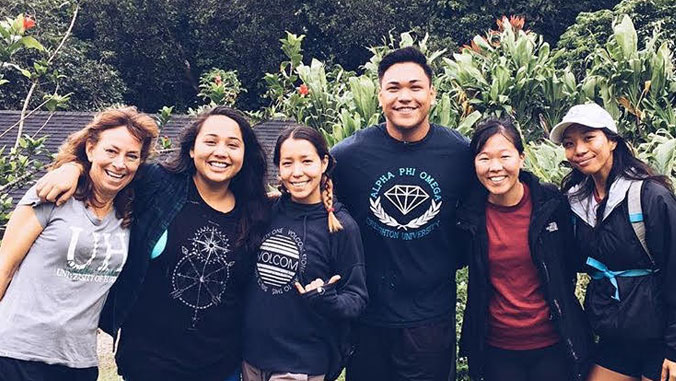
When researchers work together with community members to conduct studies to address health disparities, both groups reap the benefits, says a new paper led by faculty in the Myron B. Thompson School of Social Work at the University of Hawaiʻi at Mānoa campus.
The study was published in a recent issue of the Hawaiʻi Journal of Medicine and Public Health.
Katherine Yang, a recent master’s graduate from the UH Office of Public Health Studies and a current PhD student in epidemiology, and colleagues conducted detailed interviews with 12 leading local experts. The goal is to learn about their experiences in using a community-based participatory research (CBPR) approach to improve health outcomes and promote health equity.
“In CBPR, researchers take the time to get to know their communities by being present and listening to their concerns and priorities,” Yang said. “Our analysis showed that CBPR can serve as a bridge between academic researchers and the communities that they study.”
A true partnership
CBPR projects involve community members not as research “subjects,” but as active participants and co-leaders in all research phases. Community members work closely with researchers to conduct the study from beginning to end.
Research that uses a CBPR approach starts with an issue that is important to the community, values reciprocal learning and benefits and promotes social action.
For example, in one project, researchers who were developing a substance abuse prevention program worked with ōpio (teenagers) in a rural Hawaiian community. The teens took pictures of things that represented Native Hawaiian values to them, and then worked with the researchers to use the photos in designing a public health intervention to prevent substance use.
“Community members feel engaged when they know their voices matter and that research is relevant to their experiences, concerns and priorities,” said Jane J. Chung-Do, an associate professor with UH public health and co-author of the paper. “We wanted to better understand what makes these projects successful and what we can work on to advance CBPR in Hawaiʻi.”
For the full story, see the UH public health website.
—By Theresa Kreif

